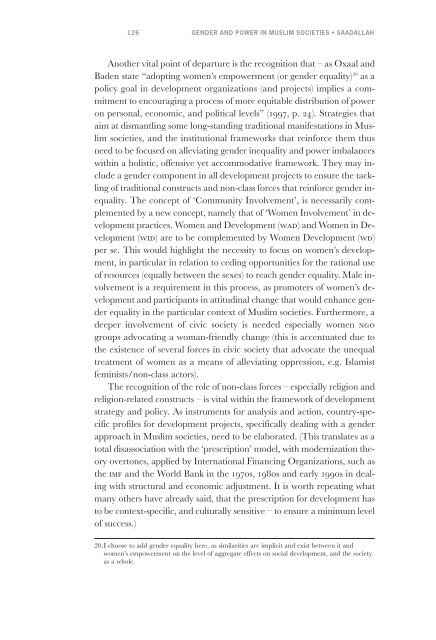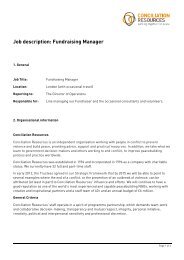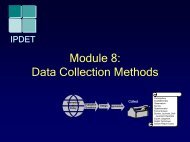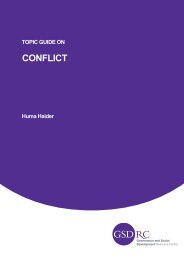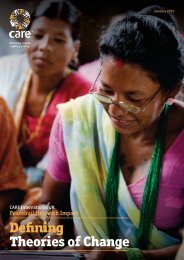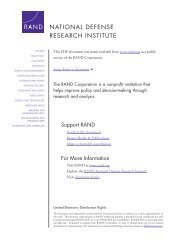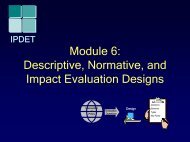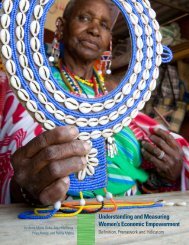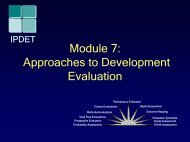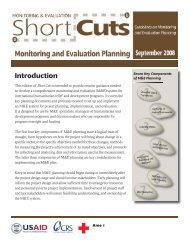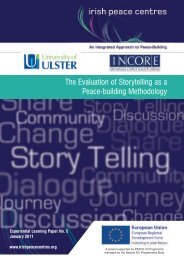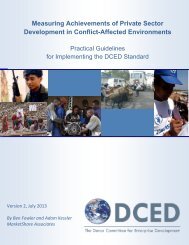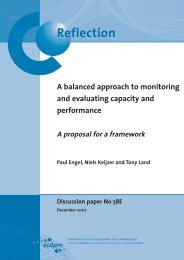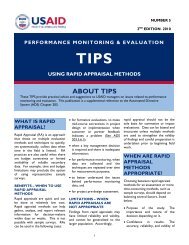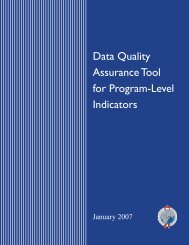Discussing Women's Empowerment - Sida
Discussing Women's Empowerment - Sida
Discussing Women's Empowerment - Sida
You also want an ePaper? Increase the reach of your titles
YUMPU automatically turns print PDFs into web optimized ePapers that Google loves.
126<br />
GENDER AND POWER IN MUSLIM SOCIETIES • SAADALLAH<br />
Another vital point of departure is the recognition that – as Oxaal and<br />
Baden state “adopting women’s empowerment (or gender equality) 20 as a<br />
policy goal in development organizations (and projects) implies a commitment<br />
to encouraging a process of more equitable distribution of power<br />
on personal, economic, and political levels” (1997, p. 24). Strategies that<br />
aim at dismantling some long-standing traditional manifestations in Muslim<br />
societies, and the institutional frameworks that reinforce them thus<br />
need to be focused on alleviating gender inequality and power imbalances<br />
within a holistic, offensive yet accommodative framework. They may include<br />
a gender component in all development projects to ensure the tackling<br />
of traditional constructs and non-class forces that reinforce gender inequality.<br />
The concept of ‘Community Involvement’, is necessarily complemented<br />
by a new concept, namely that of ‘Women Involvement’ in development<br />
practices. Women and Development (WAD) and Women in Development<br />
(WID) are to be complemented by Women Development (WD)<br />
per se. This would highlight the necessity to focus on women’s development,<br />
in particular in relation to ceding opportunities for the rational use<br />
of resources (equally between the sexes) to reach gender equality. Male involvement<br />
is a requirement in this process, as promoters of women’s development<br />
and participants in attitudinal change that would enhance gender<br />
equality in the particular context of Muslim societies. Furthermore, a<br />
deeper involvement of civic society is needed especially women NGO<br />
groups advocating a woman-friendly change (this is accentuated due to<br />
the existence of several forces in civic society that advocate the unequal<br />
treatment of women as a means of alleviating oppression, e.g. Islamist<br />
feminists/non-class actors).<br />
The recognition of the role of non-class forces – especially religion and<br />
religion-related constructs – is vital within the framework of development<br />
strategy and policy. As instruments for analysis and action, country-specific<br />
profiles for development projects, specifically dealing with a gender<br />
approach in Muslim societies, need to be elaborated. (This translates as a<br />
total disassociation with the ‘prescription’ model, with modernization theory<br />
overtones, applied by International Financing Organizations, such as<br />
the IMF and the World Bank in the 1970s, 1980s and early 1990s in dealing<br />
with structural and economic adjustment. It is worth repeating what<br />
many others have already said, that the prescription for development has<br />
to be context-specific, and culturally sensitive – to ensure a minimum level<br />
of success.)<br />
20.I choose to add gender equality here, as similarities are implicit and exist between it and<br />
women’s empowerment on the level of aggregate effects on social development, and the society<br />
as a whole.


